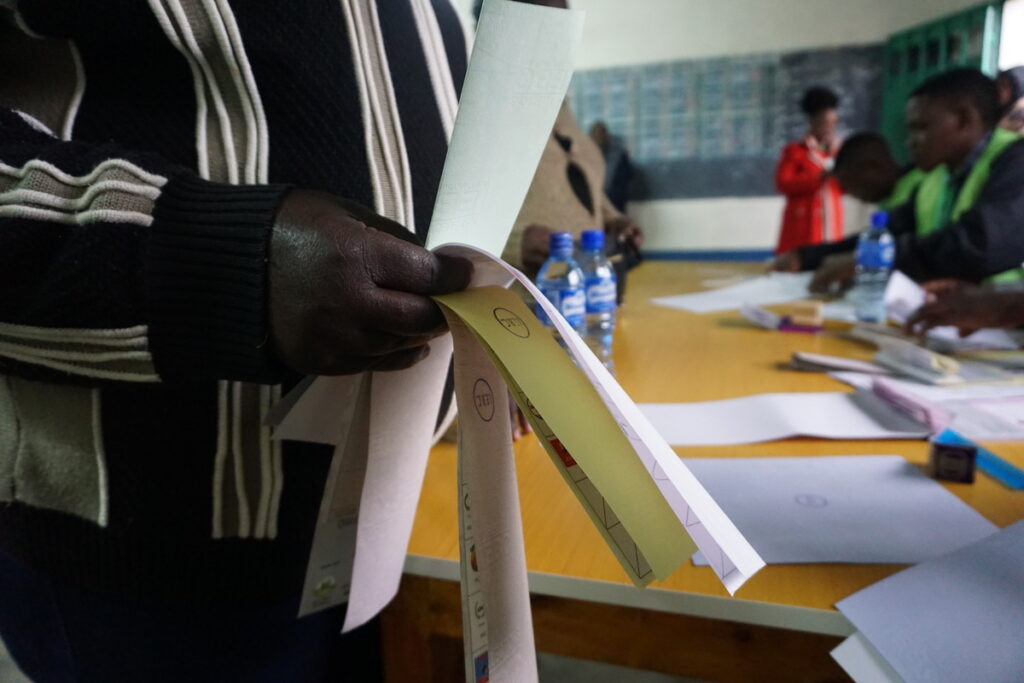By Jara Henar, Expert on migration and mobility, Alianza por la Solidaridad/ActionAid Spain
I have been exercising my right to vote for more than 20 years or, rather, my privilege to vote. Because I was born with that right, I never had to wonder about it. I always had the option to vote or not to vote. Make the decision to go drop an envelope in a ballot box and participate in the selection of local, regional, state, or European leaders. Or not, and instead go to the theater, or hang out with my friends, or stay home reading a book.
When I did choose to vote, I had the option of deciding to cast any ballot for any of the many existing parties. I got to choose carefully what to vote for or, instead, to just put in the envelope the first paper that came to my hand. And to not have to think too much, because whatever would have been the final result, I would not have to worry about having warm food on my table, about the continuity of my studies or work, or about accessing healthcare services or, in general, about having all my basic needs covered.
For years, I had the privilege of not having to realize that it was a privilege. But I have learned over time. By knowing and understanding the history of my family and how my grandparents and their brothers were forced to fight in the Spanish Civil War after the coup to the Republic in 1936. By knowing and understanding the history of my parents, who fought against the regime of a dictator that we could not or did not know how to overthrow and who, after 40 years of accumulating power and sowing fear and violence, died in his bed. To this day, in full democracy and 45 years after his death, honors of Head of State are still being paid to this dictator.
I have realized my privilege by knowing and understanding the situation of people with migrant origins in Spain who, despite having lived here for many years, cannot vote, nor their children who were born here, because they inherit the “foreign” administrative status. People who experience the impact of all political decisions, like me, but who cannot contribute their vote to decide on the rulers making those decisions.
I have also learned that democracy is imperfect, and so is the voting system. There are so many candidates and parties that have disappointed me. So many didn’t live up to the expectations generated during their election campaigns and did not keep their promises. So many, even when they were from the progressive forces, were not free from misogyny, racism or elitism and did not make the country a more equal, fairer or better place.
But, for now, I have not known any better system. And I have been able to see, in the present and in my country’s past, that when the progressive forces do not take care of the most vulnerable people as much as they should, the forces of the right don’t care about it at all. Opportunities to change the system and build more participatory democracies and models where all the rights are for all people are a little higher under progressive governments than under non-progressive governments.
So, when thinking about a message from Spain to the United States, it would be to vote. To everyone who can do it, I would tell them to please vote. And maybe, if someone is not particularly interested in voting, maybe he, she or they can make the decision to do it for those in the country, or even out of the country, who cannot vote but will receive the full consequences of the result.
From Spain, we cannot offer many solutions right now in the face of the shrinking of civil and political rights. We are seeing how, day by day, month by month, fascism and the extreme right rise like the foam of the sea. They are once again in decision-making spaces and dare to express fascist, sexist, and racist messages without any fear and they are not being hold accountable. And they are occupying the public space physically and digitally. If they win state elections one day, historical intuition tells us that we will lose more rights and that even democracy might be at stake.
The descendants of the individuals holding power during the dictatorship in Spain keep holding it. They are the ones making the extreme right grow again. And they know weapons very well and know how to use them to obtain more power: fear, hopelessness, division, alienation. The same forces deployed so well by neoliberalism and neo-colonialism.
We are in full reflection on how to stop the situation and reverse it. We do not have the remedy, that’s clear. And history is not on our side. But we do believe that decolonizing ourselves, understanding the system in which we live, and opening spaces for participation and joint construction, generating alliances, recognizing each other, destroying barriers and questioning our fears is fundamental.
Good luck and warm wishes from Spain.

